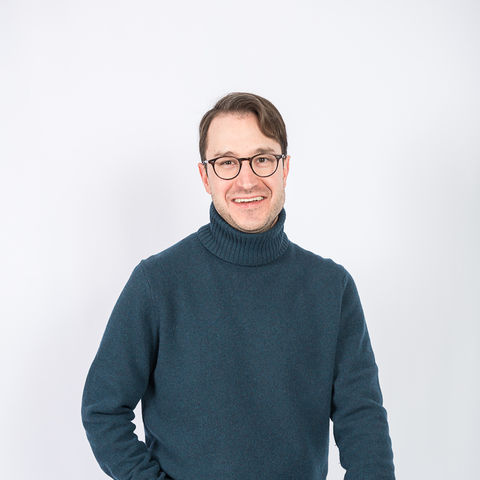Interview with Ben Whaley
May 11, 2022

"At the risk of sounding schmaltzy, I likely would not be the learner nor teacher that I am today without the EALC Department. I had a wonderful time studying Japanese in the then-Department of Asian Languages. So much so that I moonlighted as a department assistant sorting mail and restocking the copy machine during my time there. Thanks to Stanford, I was fortunate to have the opportunity to study abroad in the Bing Overseas Studies Program (Kyoto-SCTI) and, after graduation, to teach English at a medical school in Shikoku through departmental connections. I have so many fond memories from classes with Professors Carter, Reichert, and Matsumoto, as well as studying Japanese language with Nakamura Sensei and Kubo-Lowdermilk Sensei. I credit the department with instilling in me a passion for studying Japanese language, literature, and culture, as well as introducing me to manga and pop culture-related topics and texts that I continue to research to this day. Being able to complete a senior honors thesis under the supervision of Professor Reichert was also a fantastic experience and a great primer for the graduate school theses I would write in the future."
- Ben Whaley, B.A. in Japanese '07
Associate Professor of Japanese at the University of Calgary
Dissertation/thesis topic: I wrote a senior honors thesis titled “Why is Curly a Woman?! Presentationality and Nostalgia in the Takarazuka Revue” under the supervision of Professor Reichert. Curly is the main cowboy character in Rodgers and Hammerstein’s American musical classic Oklahoma! In the thesis, I analyzed the theatrical elements of stage musicals put on by Japan’s all-female Takarazuka Revue theater troupe. I entered into a discussion of how and why the Revue evokes nostalgia for a very specific simulacrum of imagined American prewar identity and national culture in their own 1967 adaptation of Oklahoma!
Current Position: I am an associate professor of Japanese in the School of Languages, Linguistics, Literatures and Cultures at the University of Calgary in Alberta, Canada.
How did you end up pursuing your career? Do you have any advice for students contemplating similar career paths?: I certainly never thought that I would become a professor of Japanese studies. The truth is, I began studying Japanese language in middle school in Seattle somewhat on a whim. I had my first opportunity to travel to Japan while still in middle school on an exchange program we had with a sister school in Kanazawa City. So, it was from these first few language classes and my short exchange trip as a teenager that I really fell in love with the language and culture of Japan. When I came to Stanford, I actually planned to major in music composition and write original tunes for video games. But, when I was booted from my piano professor’s studio for not practicing enough, I found my way back to my original passion of studying Japanese and pursued my major. After graduation, I spent a year teaching English at a Japanese medical school before returning to North America and enrolling in graduate school at the University of British Columbia in Vancouver, Canada. This led me quite naturally to my current academic job in Calgary.
My advice for students would be to jump right in to your classes, clubs, and visit your country of interest as soon as possible. Strive to attend (or present) at a national conference as soon as you can, publish articles as soon as you have papers ready, and organize events as soon as there are willing participants. Some of the best “academic” advice I ever received came from my improvisational theater professor at Stanford: “It’s never too early to pretend that you are a confident improviser.” The same advice rings true for scholarly careers. In times of insecurity, and there will be many during your major program or academic career, fake it. Look to those around you and mimic what they do. Eventually, if you pretend that you are a confident student or teacher for long enough, you will actually become one.
Some details about an ongoing project, recent publication, a notable accomplishment: These days, much of my research centers on Japanese popular culture studies, with a focus on video games and manga—two topics I began writing and thinking about while in the department. I’m proud to say that my first book should be out by the end of this year (or early next). It’s tentatively titled Toward a Gameic World: New Rules of Engagement from Japanese Video Games and will be published by the University of Michigan Press. This will be the press’s first ever academic book on Japanese video games, and it examines the ways in which Japanese games interrogate national traumas and social issues while simultaneously prompting players’ affective engagement through unique gameplay mechanisms. With this book, and with my recent article in The Journal of Asian Studies (2019), I am proud to be bringing Japanese video game studies to light within the broader discipline. I hope more colleagues will pick up the controller and join in. My other ongoing project analyzes postwar manga about Jewish identities and the Holocaust.